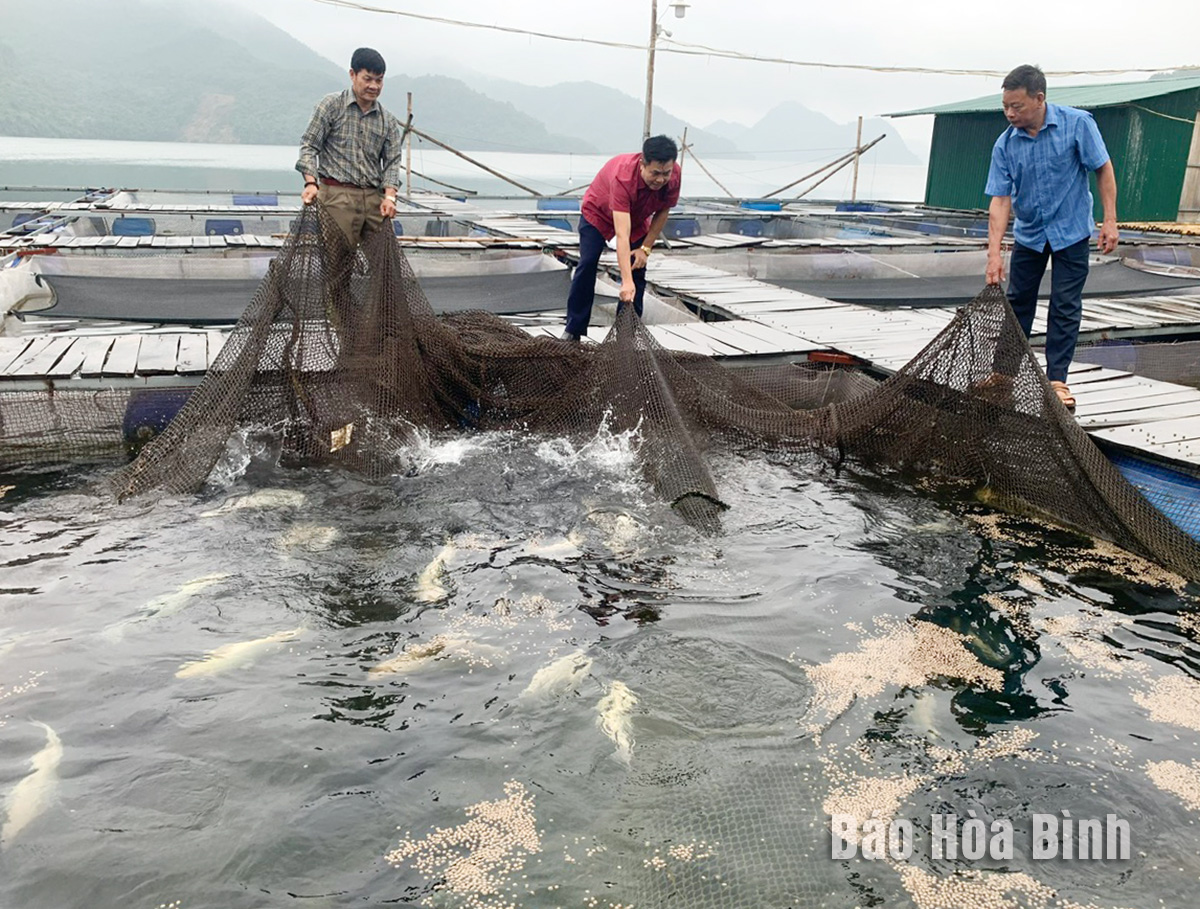



The cage fish farming model on the Da River helps many households in Hoa Binh city's Hoa Binh commune increase their income, develop their economy and contribute to realise criteria for advanced new-style rural area building.
Eight communes that are expected to meet new-style rural area standards this year are Thach Yen (Cao Phong district); Lac Sy (Yen Thuy district); Xuan Thuy, Kim Lap (Kim Boi district); Na Phon, Cun Pheo (Mai Chau district); Yen Hoa (Da Bac district) and Ngo Luong (Tan Lac district). Four others, that are anticipated to fulfil advanced new-style rural area standards, comprise Bac Phong (Cao Phong district), Thinh Minh (Hoa Binh City), Cu Yen (Luong Son district) and Tu Ly (Da Bac district). Five communes that strive to meet exemplary new-style rural are Lam Son, Hoa Son (Luong Son district), Yen Mong (Hoa Binh City), Phu Nghia (Lac Thuy district) and Tan My (Lac Son district).
Currently, seven communes have satisfied 15 out of 18 criteria for new-style rural area building, one commune fulfilled 10 out of 19 criteria; three communes met 15 - 17 criteria of advanced new-style rural area standards and five communes fulfilled 14-15 out of 19 criteria of exemplary new-style rural area.
According to the provincial Department of Agriculture and Rural Development, most communes haven't met criteria related to transportation infrastructure, cultural facilities, housing, healthcare as well as income and poverty rate. It is attributable to the fact that communes striving to meet the new-style rural area this year are extremely disadvantaged ones with high poverty rate and low income. Their large natural acreage and scattered population also pose a challenge for these communes to upgrade transportation and irrigation infrastructure as well as mobilise resources to implement the programme, thus making it difficult for them to meet new-style rural area standards.
Regarding advanced new-style rural area and exemplary new-style rural area building, many changes in terms of criteria for 2021-2025 period compared to 2016-2020 have caused difficulties. Particularly, the criterion relating to the application of information technology (IT) to build smart rural areas has not been implemented due to shortcomings in IT infrastructure at the grassroots level.
On the other hand, the resources allocated by the central and provincial governments for the national target programme on new-style rural area building have not met the needs of localities. Mobilisation of social resources for the programme remains limited as it mainly relies on working day contributions from locals.
Since the beginning of this year, the Department of Agriculture and Rural Development has directed its subordinate units to carry out the national target programme on new-style rural area building for the 2021-2025 period in a synchronised and effective manner, along with the implementation of "One commune, one product" programme; "Criteria for exemplary new-style village" and "Criteria for exemplary new-style garden", towards building smart new-style rural area building. The quality of life for rural residents will be improved together with the creation of multiple production models associated to generating stable employment for residents. The development of farm and cooperative economy will be sped up and agricultural cooperatives will receive help to enhance their capacity.
In 2024, the department will continue to coordinate with localities to expedite disbursement of funding to implement the national target programme on new-style rural area building, aiming to maximise resources for infrastructure construction and socio-economic development of communes that engage in new-style rural area building this year. The establishment of agricultural cooperatives and cooperatives groups in line with value chains will be encouraged. Farm economy, household economy, and vocational training plans for rural labourers will be expanded.
The focus will be placed on enhancing linkages in agricultural production to raise income for farmers. Businesses will be encouraged to invest in agriculture and rural areas to attract more capital in these fields.
The department will strengthen collaboration with localities at home and abroad to explore and apply new growth models, seek opportunities for investment cooperation, joint ventures, and application of advanced technology in agricultural production.